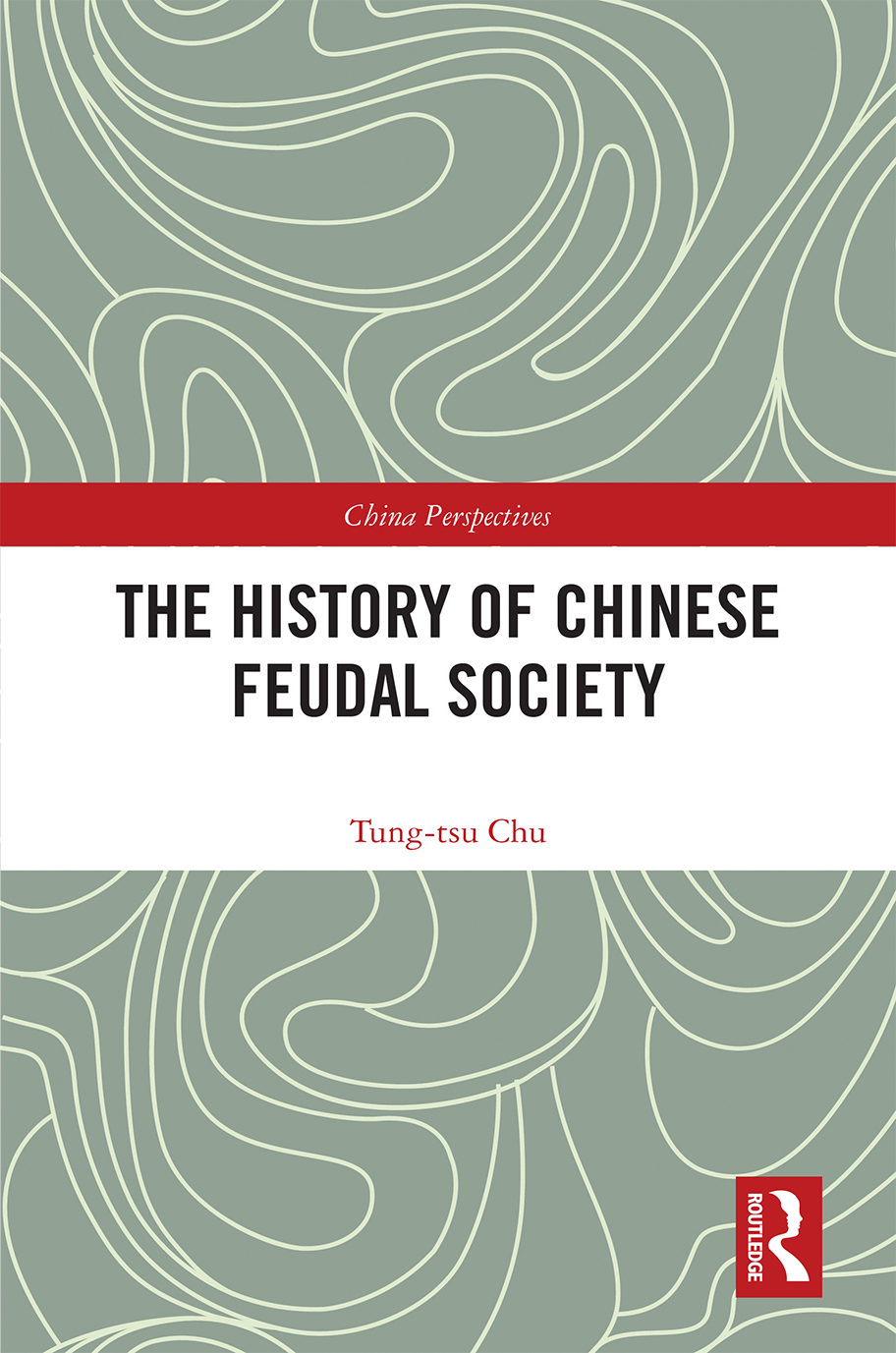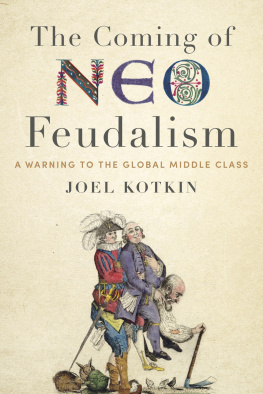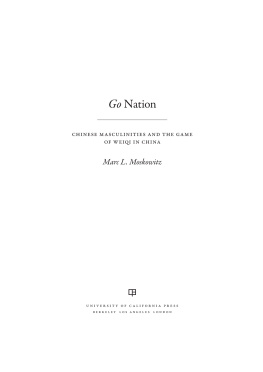Contents
Landmarks

The History of Chinese Feudal Society
Feudalism is one of the most studied topics in the field of history, but without a consensus on its central characteristics, it remains a slippery concept.
The History of Chinese Feudal Society provides a comprehensive analysis on the rise and fall of feudalism in China. Drawing on a vast library of archival materials, it is the first study to investigate feudalism in China from the perspective of sociology and to compare feudalism in China to feudalism in the West. The author proposes that landownership and the relationship between landowners and farmers are the two determining factors of feudalism, with the Yin Dynasty marking a transitional stage to feudalism and the Zhou Dynasty witnessing the establishment of feudalism as a political system and central institution.
This book was written by one of the best-known Chinese historians and has been a classic best-seller for decades. Students and scholars of Chinese history, especially Chinese feudalism, will find it to be an essential reference in their study and research.
Tung-tsu Chu was member of Chinese Academy of Social Sciences and research fellow at Columbia University and Harvard University. His research interests included sociology and history. His most important publications included Law and Society in Traditional China, Local Government in China Under the Ching and Han Social Structure and The History of Chinese Feudal Society.
China Perspectives
The China Perspectives series focuses on translating and publishing works by leading Chinese scholars, writing about both global topics and China-related themes. It covers Humanities & Social Sciences, Education, Media and Psychology, as well as many interdisciplinary themes.
This is the first time any of these books have been published in English for international readers. The series aims to put forward a Chinese perspective, give insights into cutting-edge academic thinking in China, and inspire researchers globally.
Titles in history currently include:
Merchants and Society in Modern China
Rise of Merchant Groups
Tang Lixing
Merchants and Society in Modern China
From Guild to Chamber of Commerce
Tang Lixing
The History of Sino-Japanese Cultural Exchange
TENG Jun
Chinese Buddhism and Traditional Culture
FANG Litian
The Hidden Land
The Garrison System and the Ming Dynasty
Gu Cheng
The History of Chinese Feudal Society
Tung-tsu Chu
For more information, please visit https://www.routledge.com/series/CPH
The History of Chinese Feudal Society
Tung-tsu Chu
TRANSLATED BY
WANG QINGYONG AND DENG WEITIAN

First published in English 2021
by Routledge
2 Park Square, Milton Park, Abingdon, Oxon OX14 4RN
and by Routledge
52 Vanderbilt Avenue, New York, NY 10017
Routledge is an imprint of the Taylor & Francis Group, an informa business
2021 Tung-tsu Chu
Translated by Wang Qingyong and Deng Weitian
The right of Tung-tsu Chu to be identified as author of this work has been asserted by him in accordance with sections 77 and 78 of the Copyright, Designs and Patents Act 1988.
All rights reserved. No part of this book may be reprinted or reproduced or utilised in any form or by any electronic, mechanical, or other means, now known or hereafter invented, including photocopying and recording, or in any information storage or retrieval system, without permission in writing from the publishers.
Trademark notice: Product or corporate names may be trademarks or registered trademarks, and are used only for identification and explanation without intent to infringe.
English Version by permission of The Commercial Press.
British Library Cataloguing-in-Publication Data
A catalogue record for this book is available from the British Library
Library of Congress Cataloging-in-Publication Data
A catalog record has been requested for this book
ISBN: 978-1-138-33059-7 (hbk)
ISBN: 978-0-429-44780-8 (ebk)
Typeset in Times New Roman
by codeMantra
Contents
This study, as its name suggests, looks into the history of Chinese feudal society. Before discussing the subject, I would like to remind my readers that this study is not confined to history alone; therefore, it does not aim to present a historical account of incidents in a chronological order. Instead, a series of facts are illustrated as testimony to the social phenomena at the time. Additionally, this study not only examines specific issues, such as economic and political systems, but also aims to shed light on all of the social affairs in a feudal society.
More importantly, this study does not merely see feudalism as something static; it conducts an analysis of feudalism from its birth to its collapse, covering the functions of its social organisations and their relations, aiming to provide a comprehensive picture of Chinese feudal society.
What is feudalism? First, a general definition is needed as feudalism itself is a slippery concept. In English, the word means fief,; this is similar to how we define it in China, where feudal nobles were granted
However, common ground can always be found, despite complexities, once relentless efforts have been made to analyse a social phenomenon. The same is true of the study of feudalism. Although different feudal states had different conditions, we will be able to find their common features if we study them separately and then comprehensively. The more insightful and accurate the methodology, the better the results will be.
Henry Sumner
Paul
G. B.
A. E.
In
Marc
These scholars did not agree on everything, but they had two points in common: (1) Landownership and (2) Relationship between landowners and farmers. The first concerns the fundamental feature and pillar of feudalism; the second concerns the outgrowth of a feudal society. Those who had land were owners, while those who did not have land and farmed others land were farmers. Their relations shaped their identities as the On the other hand, they enjoyed the right to rule their inferiors and receive services from them. The non-privileged, on the other hand, since they did not own lands, were compelled to loyally serve their landowners.
To put it more precisely, feudalism was a system of stratified society, and land was the basis on which peoples obligations and rights were defined.
Now, we shall try to define the time at which feudalism occurred in China, which is probably a more difficult task than defining feudalism itself. Chinese feudalism dates back to ancient times, with limited historical accounts to determine the exact period. In an attempt to avoid controversy, some scholars believe that legends of feudalism arose before the Zhou () Dynasty, but legends are not tenable at all. Therefore it is fairer to say that feudalism started during the
Some other scholars, however, argue that China has a longer history of feudalism. They think that although historical accounts are dubious, truth can be found by sifting through available information. They have found that such titles as Marquis() and Count() appeared even when oracle bones () were used in history; therefore they have concluded that the Yin () Dynasty had a feudal system. Their opponents challenge this notion and cast doubt on the exact meaning of these two terms at this time.









